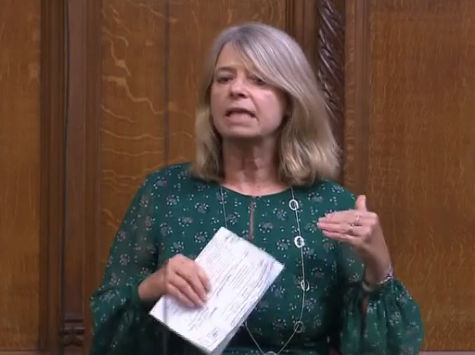Harriett Baldwin welcomes the UK commitment to send troops to MINUSMA—the United Nations Multidimensional Integrated Stabilisation Mission in Mali— and calls on the Government to address the sources of conflict in the Sahel and west Africa.

Harriett Baldwin (West Worcestershire) (Con)
I will not say it is a pleasure, but it is interesting to follow the eclectic comments of the hon. Member for Ellesmere Port and Neston (Justin Madders), whose speech I would summarise as sour grapes.
That is not the tone in which I wanted to make my remarks this afternoon. I want to thank you, Madam Deputy Speaker, and all the other Deputy Speakers, Mr Speaker and the whole House staff for the amazing way in which they have allowed us to come back here since the end of April, in this hybrid fashion, to hold the Government to account through this difficult period for the country.
I also want to thank everyone in my local area—in West Worcestershire and across Worcestershire—who has worked tirelessly to support the whole community and everyone who has observed the guidelines in such a way that I now have real hope that we have conquered this public health challenge. I am particularly grateful to my own casework team, who have had to deal with quite unprecedented volumes of work in service to the community. I want to put those thanks on record to them now.
As chair of the British Group of the Inter-Parliamentary Union, I want to update colleagues on what the IPU has been up to. I thank the staff of the IPU for having worked relentlessly right through this crisis, working to maintain those links between 179 Parliaments and 46,000 parliamentarians, at a time when it could not have been more important to maintain those links. As Back Benchers, all of us are part of the IPU, and we have taken the view as an executive that we want to continue with virtual links between Parliaments. We have had virtual bilaterals with Sweden, Norway, Italy and Colombia. I thank Mr Speaker for agreeing to take part in the virtual Speakers’ conference that will happen during August. I was also delighted to hear today that the president of the IPU has invited Professor Sarah Gilbert of Oxford University to be the keynote speaker, and that she has agreed to that invitation. That is a wonderful opportunity to showcase the fantastic work they are doing at my alma mater.
I also want to thank everyone who has taken part in all these virtual events. As the House knows, we have a particular focus on the non-Commonwealth countries, and we have found the sessions to be so informative in terms of the links between different Parliaments and different countries and how they have taken different approaches to the outbreak and at different times. We have had some very good information sharing and learning from each other.
We have also been able to focus on many of the other priorities of the BGIPU. On media freedom, we had a John Smith Trust session with graduates from Georgia, Armenia, Belarus, Moldova and Ukraine. We were able to focus an event on refugees. We have been able to liaise with UK ambassadors and high commissioners from across Africa and from some of the most conflict-afflicted parts of Africa, such as Cameroon, Democratic Republic of Congo and Somalia, as well as with the International Committee of the Red Cross. We have been able to hold seminars jointly with the BBC. There was one on Chechnya and LGBT issues.
We were able to hold a roundtable last week with the ambassador from the Republic of Korea. I think all colleagues are aware that Korea has been able to apply its experience from the outbreak earlier in the 2000s to the current crisis, and we learned an enormous amount from that session. All those events are of course on the website.
I should update colleagues on the fact that over the course of the next few months, we have to make a decision as a Parliament as to who we want to back to succeed to the presidency of the IPU, because the current president, Gabriela Cuevas Barron, comes to the end of her term in October. There will be a meeting in November to decide the next president. At the moment, only two people have so far shown their candidacy—one from Portugal and one from Pakistan. We as the BGIPU are looking for a few more candidates to show their hand. We want to see what the whole field looks like before we decide who we want to back to take on the important role of the presidency.
I encourage all colleagues to get involved and take part in the wide range of interesting meetings. There has never been a more important time for these 46,000 parliamentarians from 179 countries to come together and share their experiences and how they have been holding their Governments to account. I thank you, Madam Deputy Speaker, for this opportunity to update colleagues.
